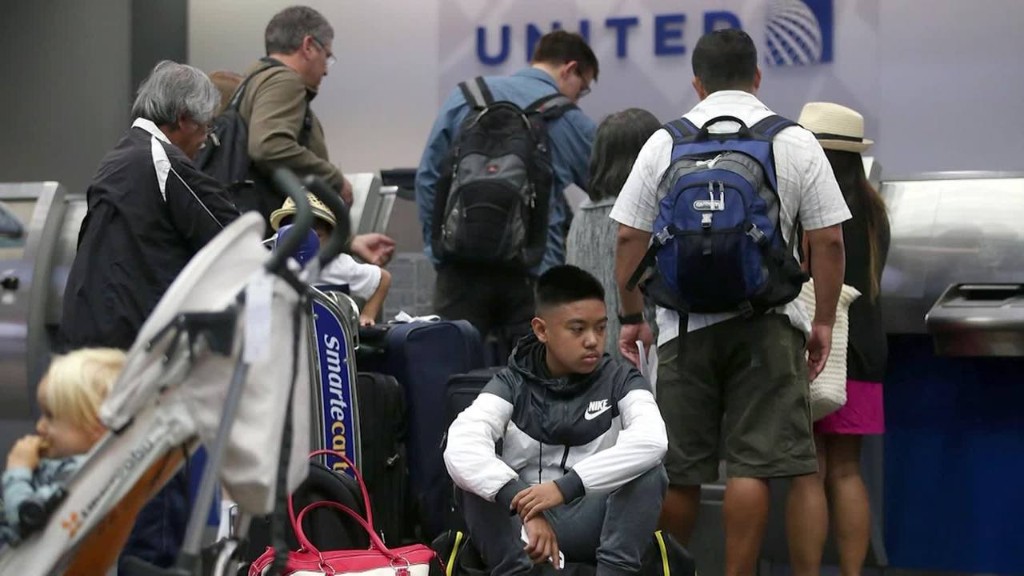
The glitch that halted trading on the New York Stock Exchange is leaving investors of all ages scratching their heads.
NYSE suspended trading for nearly four hours on Wednesday. Trading stopped at 11:32 a.m. and resumed around 3:10 p.m. ET after what NYSE called an internal technical problem, not a cyber attack.
Various law enforcement and government security agencies, including the FBI and Homeland Security Department, have said they see "no malicious activity" at this stage.
Many CNNMoney readers and investors have been tweeting and writing in with questions. Here are the answers to the most frequently asked questions.
Related: NYSE suspends trading. What we know
1) Were people still able to buy and sell stocks? Yes. The United States has many stock exchanges where you (and other investors from around the world) can buy and sell stocks. Only the New York Stock Exchange stopped working on Wednesday -- and even it got back up and running eventually.
"People can trade. If you're a retail customer you won't notice the difference in how the order is handled," said James Angel, a finance professor at Georgetown University who has testified before Congress on market structure issues.
Investors placing trades were routed to other exchanges, such as Nasdaq and BATS. Even stocks listed on the NYSE were still trading elsewhere. That's why total volume on NYSE stood at "only" 444 million shares on Wednesday, compared with the usual 600 million to 700 million.
A huge chunk of those trades -- about 250 million shares worth -- were executed during the final 50 minutes after the NYSE reopened.
2) Is this a cyber attack? Authorities don't believe so. There is no evidence yet that this is a cyber attack. NYSE put out a statement saying that it halted trading because of a technical problem and that it was "not the result of a cyber breach." Government agencies have said the same thing. As a Homeland Security spokesman told CNN, there "are no signs of malicious activity at this time."
3) Has this ever happened before? Yes. There was a "Flash Freeze" on the Nasdaq in 2013 that lasted three hours. That more serious incident caused all Nasdaq-listed stocks to stop trading altogether.
Still, it's highly unusual to see a mass outage like this for several hours. Smaller outages have occurred in the past though.
Related: This isn't the first U.S. stock market 'glitch'
4) Will this impact my 401k? Probably not. Stocks were already down Wednesday because of investor concerns about China's plunging stock market and the ongoing Greece debt saga. While the market remained deeply in the red after NYSE resumed trading, it should be a "once and done" situation.
The only way it has lasting impact is if we learn that this was a cyber attack. That would dent investor confidence by implying it could happen again.
5) Should I dump stocks simply because of this? No. There are lots of legitimate reasons to be worried about stocks like Greece, China and expensive stock prices that might not be justified. The NYSE halt is minor in comparison, at least at this stage.
"Heaven's no," Angel said in response to whether mom-and-pop investors should sell because of the NYSE incident.
"Today's glitch is a reminder of the complex nature of our markets, but I find it quite reassuring of how resilient our market network really is," he said.
6) Why was the Dow still moving? If you are looking at a trading screen, you were able to still see popular indexes like the Dow, S&P 500 and Nasdaq moving up and down because stocks were stilll trading on all other stock exchanges except the NYSE. The Dow was down about 175 points when NYSE halted trading. It fell a bit further when trading resumed.
Related: Tech fail! Explaining today's 3 big computer errors
7) How much money will potentially be lost? Likely not much. It's possible the NYSE could be fined and that some trading firms won't make as much money Wednesday because of lower trading volumes. But so far, the stock market sell-off isn't that much worse than it would have been without the NYSE glitch.
8) How significant is this and what are the consequences? At this point, the impact is limited. The NYSE could lose some business if investors are concerned that a technical problem could happen again, especially since trading still continued on other exchanges.
"This is a minor technical issue. We're going to see more of these in the future," Angel said.
CNN's Alison Kosik contributed to this report.


